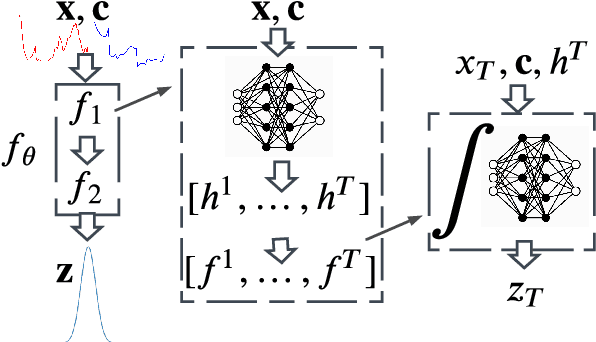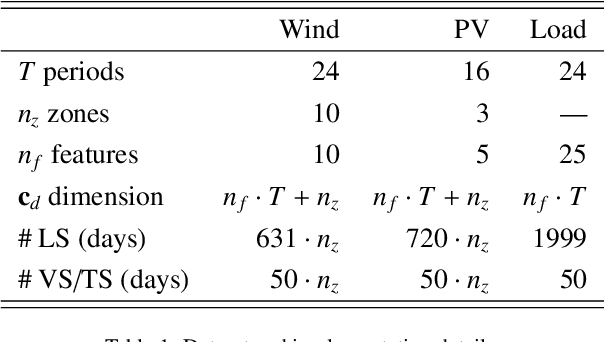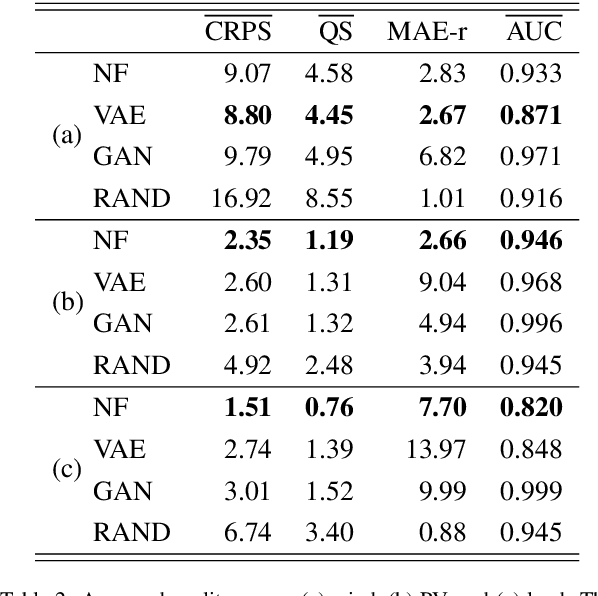Antoine Wehenkel Damien Lanaspeze
Deep generative modeling for probabilistic forecasting in power systems
Jun 30, 2021



Abstract:Greater direct electrification of end-use sectors with a higher share of renewables is one of the pillars to power a carbon-neutral society by 2050. This study uses a recent deep learning technique, the normalizing flows, to produce accurate probabilistic forecasts that are crucial for decision-makers to face the new challenges in power systems applications. Through comprehensive empirical evaluations using the open data of the Global Energy Forecasting Competition 2014, we demonstrate that our methodology is competitive with other state-of-the-art deep learning generative models: generative adversarial networks and variational autoencoders. The models producing weather-based wind, solar power, and load scenarios are properly compared both in terms of forecast value, by considering the case study of an energy retailer, and quality using several complementary metrics.
 Add to Chrome
Add to Chrome Add to Firefox
Add to Firefox Add to Edge
Add to Edge